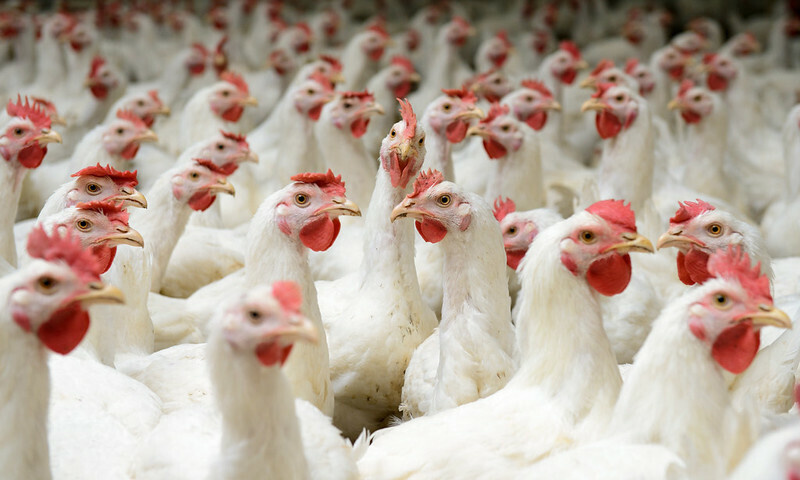
Thailand's Minister of Agriculture and Cooperatives, Dr. Narumon Pinyosinwat, announced a significant advancement in agricultural trade relations between Thailand and the Philippines. Following discussions with Philippine Agriculture Secretary Francisco P. Tiu Laurel Jr. on February 28, 2025, Thailand has secured the opportunity to export frozen poultry products, including chicken and duck, to the Philippines.
The Department of Livestock Development of Thailand confirmed that the Philippines' Bureau of Animal Industry (BAI), under the Department of Agriculture, has approved two Thai establishments, EST. 1 Bangkok Ranch and EST. 79 Panus Poultry, as official exporters of frozen poultry. This marks a historic milestone for Thailand, which previously could only export cooked chicken to the Philippines.
Minister Narumon expressed optimism about this new opportunity, stating, "This is very good news for Thai farmers. We can now export frozen poultry to the Philippines, which aligns with previous discussions with the Philippines." She added, "The Philippines has granted permission for the export of raw chicken meat, subject to the completion of health certification documents." Furthermore, she mentioned that the approval of these two establishments is just the beginning, with more facilities expected to be certified in the future.
The initial export capacity of these two approved facilities is estimated at around 5,000 tons per year, valued at approximately 500 million baht (about 18.5 billion Korean won). Minister Narumon projected that if more facilities receive certification, Thailand could capture up to 25% of the multi-billion baht Philippine frozen poultry market.
"The frozen poultry market is much larger than the cooked poultry market, so this is a very important opportunity for Thai agriculture and farmers," emphasized Minister Narumon. "This new market access is a significant step forward for our agricultural exports, and we are committed to facilitating this process as quickly as possible."
The positive reception of Thai agricultural products in the Philippine market reflects the growing trade relationship between the two countries, particularly in terms of food security and agricultural cooperation. The Philippines recognizes the importance of diversifying its sources of poultry imports, and Thailand's established reputation for high-quality agricultural products positions it favorably in this new venture.
In related efforts to enhance Thailand's agricultural export capabilities, Deputy Minister of Commerce Phichai Naripthaphan presented a comprehensive strategy to boost the export of Thai fruits and other agricultural products. During a meeting with various stakeholders, Deputy Minister Phichai emphasized the need for proactive approaches to address issues of market oversupply and enhance price competitiveness for farmers.
He announced that the Ministry of Commerce is implementing seven key measures and 25 action plans to promote the export of 950,000 tons of Thai fruits to both domestic and international markets. These plans include promotional campaigns to boost domestic consumption and partnerships with major retailers to establish direct sales channels for farmers.
Deputy Minister Phichai also highlighted the importance of leveraging existing Free Trade Agreements (FTAs) to increase market access and reduce trade barriers. "We are diligently working to finalize FTA negotiations with the European Union (EU), South Korea, and ASEAN-Canada within this year. This will enable Thailand to trade with around 50 countries, boosting the confidence of exporters and opening up new markets for Thai products," he stated.
The success of FTAs is already evident, with Thai exports reaching a record high of $29.5 billion in March 2025, marking a 17.8% increase. This upward trend in exports is crucial for the Thai economy, especially as Thailand seeks to recover from the impact of the COVID-19 pandemic.
In addition to expanding market access, the Ministry of Commerce is revamping the Thai SELECT project to elevate the global standing of Thai food and agricultural products. This initiative aims to certify Thai restaurants overseas, ensuring the use of authentic Thai ingredients and promoting the unique flavors of Thai cuisine.
"The Thai SELECT scheme is being improved with a new quality certification mark to align with global brand standards. This will help promote our culinary heritage and increase demand for Thai agricultural products in international markets," noted Deputy Minister Phichai.
As Thailand embarks on this new chapter in agricultural exports, the collaboration between the Ministry of Agriculture and Cooperatives and the Ministry of Commerce is expected to yield significant benefits for local farmers and the broader economy. The successful opening of the Philippine frozen poultry market, along with ongoing efforts to promote fruit exports and leverage FTAs, demonstrates Thailand's commitment to strengthening its agricultural sector and securing its position as a key agricultural exporter in Southeast Asia.
In conclusion, the approval for Thailand to export frozen poultry to the Philippines is a significant achievement that will not only benefit Thai farmers but also strengthen the agricultural trade relationship between the two nations. Coupled with ongoing efforts to expand market access and promote Thai agricultural products, the future of Thailand's agricultural sector looks promising.
[Copyright (c) Global Economic Times. All Rights Reserved.]






























